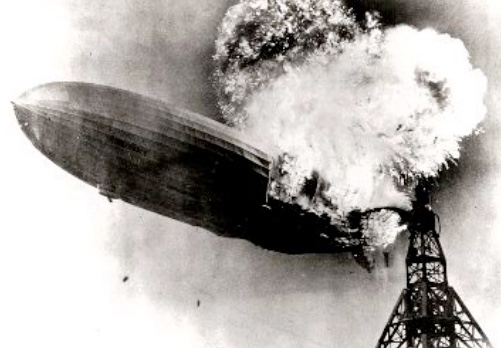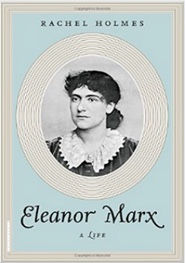NYT History Book Reviews: Who Got Noticed this Week?

The Hindenburg (Source: American-Historama.org)
The first book reviewed is A Higher Form of Killing by Diana Preston. Preston, a British historian, interestingly goes by the pseudonym "Alex Rutherford" when she partners with her husband Michael in authoring books. The Empire of the Moghul series was their first, and successful, attempt at historical fiction. When asked why they chose this particular name, Preston said that 'Rutherford' came from the Nobel Laureate Ernest Rutherford, and that they "wanted a first name that would fit both, so we plumped for Alex; and Alex Rutherford seemed to gel. It was fun to create a new identity."
Note: If you're reading this and your actual name is Alex Rutherford, don't overreact! You exist.
Her new book is about how World War I acted as a nursery for a startlingly grotesque line-up of weapons that changed our world forever, such as the German-procured trifecta of poison gas, U-boat submarines, and the zeppelin. The surface is merely being scratched here in relation to the development of extreme weapons during that time period, but you can find out about all of that in this book.
Note: If you're reading this and enjoying it wistfully, then I am currently employing Weapons of Mass Seduction effectively.
Among the weapons discussed in the book, the zeppelin has some cool facts about it. For one, parachutes were considered excess weight, and therefore, not carried. Also, bombs were thrown by hand from the rear cockpit of the airship's “gondola,” which was the name given to an external compartment that was suspended from the airship balloon, designed to carry people and cargo. Or large crates of Belgian waffles. The Zeppelin Airship was patented in the United States in 1899, 4 years before the Wright Brothers would make their historic debut with their own "Flying Machine."
The book was reviewed by Alexander Rose, a historian who has appeared on HNN before. He was likely chosen because of his knowledge on the subject. In 2009, he wrote a biography of the American rifle.
Rose says: "Preston does not delve as fully as she ought into the late-Victorian nature and context of these “higher forms” of killing (so called to distinguish them from vulgar bullets and shells)."
The second book reviewed is Eye on the Struggle: Ethel Payne, the First Lady of the Black Press by James McGrath Morris. Morris is an author who is perhaps best known for his biography of Joseph Pulitzer. In his latest release, readers will find out about a woman who they've probably never heard of, but should. Morris brings into view the life of a pioneering journalist who hasn't gotten the recognition she deserves for her role as a significant figure in the civil rights era—Ethel Payne, the “First Lady of the Black Press." She was the first African-American female to report international news. In 1964, President Lyndon B. Johnson presented her with a pen used in signing the Civil Rights Act.
In 1973, Payne accompanied then Secretary of State Henry Kissinger to the People’s Republic of China, and she also travelled to six nations in Africa with Kissinger in 1976. In 2013, Morris wrote an article for Al-Jazeera entitled "US government secrecy making historical research difficult" where he wrote about his futile attempts at accessing FBI records on Payne, who they’d opened a file on, citing her status as a high profile African-American journalist with a budding presence all over the world, including Korea and Vietnam.
Morris writes:
The FBI opened a file on Payne in 1973 on the basis of information its New York field office obtained, alleging subversive behavior on her part. Agents were able to determine only that she worked for the Chicago Defender, then one of the most prominent black newspapers; was a past president of the Capital Press Club, "composed of approximately 100 black news representatives"; and was scheduled to appear at a National Urban League convention — hardly the activities of a subversive.
When Morris placed a routine Freedom of Information Act (FOIA) request in 2011 for her FBI file, the FBI promptly mailed him the requested file. When he opened it, however, he discovered that the material was mostly blank pages. He appealed to have the file without omissions, even citing President Obama's FOIA memorandum. He "presumed this administration might be more sympathetic to exposing past FBI transgressions against blacks." Despite his attempts at securing accurate information for his book, the FBI continues to deny his requests.
Morris reacted:
Even though it is likely that the hidden material in the file is benign, the FBI continues to stonewall my request to reveal those portions of the file that have been blanked out. Those sections would be key in understanding not only Payne as the subject of government investigation, but also how the FBI made its determination as to who would be the subject of its surveillance. This is the stuff that matters. For how can we tell the story of our government's activities, right or wrong, when the manner by which it conducted its business is kept from us decades later?
The reviewer is Khalil Gibran Muhammed, director of the Schomburg Center for Research in Black Culture at the New York Public Library, professor, and author of books on black history. His great grandfather was Elijah Muhammed, one of the leaders of the Nation of Islam.
Muhammed writes in his review:
Morris has written a fast-paced, engrossing biography, weaving the details of Payne’s personal and infinitely intriguing professional life against the backdrop of 20th-century race relations, the civil rights movement and Cold War anticolonialism.
Morris’s fine biography shows that through Ethel Payne’s life, the black press helped change America and the world.

The third and final book that was reviewed is Eleanor Marx: A Life by Rachel Holmes. Eleanor Marx, the daughter of Karl Marx, was the first woman to lead the British dock workers' and gas workers' trade unions, and she also served as her father's personal secretary and researcher. When she was a child, running about in the house, Karl was busy writing his famous work Capital. For Eleanor, gender equality was a necessary element of a just society, spurring her to campaign in Britain and on a celebrated tour across America in 1886, where she addressed thousands of people in New York City in speeches promoting socialism.
This biography by Rachel Holmes gives readers an intimate inside look at this woman's personal and political life, from bad relationships and unworthy men to her ceaseless and tireless advocacy of British socialism. In March of 1898, Eleanor committed suicide by swallowing poison, after learning her longtime partner Edward Aveling had been cheated on her.
Needless to say, the reviewer, Vivian Gornick, a journalist and memoirist who has written about feminism, love, social issues, and revolution—is a very qualified candidate to critique this book.
Gornick says:
Three women possessed of extraordinary political talent loved men who were unworthy of them: Rosa Luxemburg, Emma Goldman and Eleanor Marx. The first two survived these debilitating attachments, the third did not."
"Rachel Holmes’s biography of Eleanor Marx is probably more hagiographic than it should be — its opening line is “Eleanor Marx changed the world” — but it captures vividly the drama of a woman with a hunger for the world who did her damnedest to live life on the largest terms possible, and to a very considerable degree succeeded.